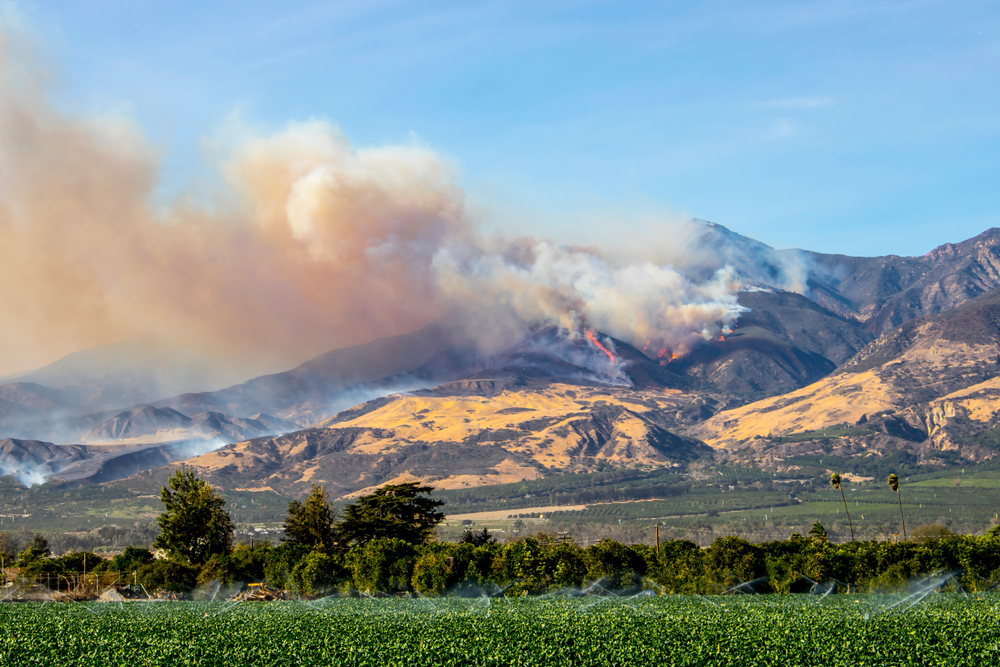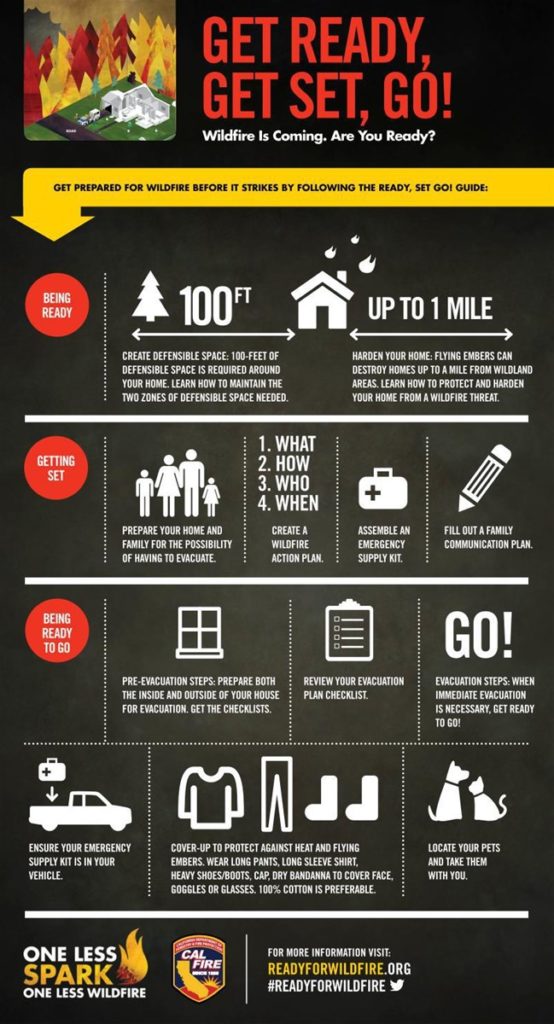
This article was last updated on January 9, 2025.
The catastrophic wildfires that have unfolded in California over the past several years have left many wondering what measures to take before and after a wildfire occurs.
We found some valuable tips from Cal Fire, a local attorney, and a real estate agent to help you prepare for and recover from a wildfire in your area.
Preparing for a Wildfire
To prepare for a wildfire, you can give your household the best chance of surviving by being ready to go and evacuating early. This includes going through pre-evacuation preparation steps (only if time allows) to increase your home’s defenses and creating a Wildfire Action Plan for your family.
Being ready to go also means knowing when to evacuate and what to do if you become trapped. This complimentary PDF of Cal Fire's Wildfire Evacuation Plan is extremely helpful when evacuating early.

Returning Home After a Wildfire
Re-entering your home can be an emotional experience. We have found that checklists like these can be helpful at times. Once it's safe to return home, perform these safety checks:
- Look for hot spots, smoldering areas, and vegetation on your property.
- Inspect the roof and outer parts of your house for any sparks or embers.
- Search the attic and all rooms for hidden sparks or embers.
- Examine your home for fire damage. Ensure all appliances are off and the main circuit breaker is safe to turn on.
- Check your water supply system, like wells or pump-houses, to ensure they work.
- If you spot any danger, call 911 immediately.
Rebuilding After Wildfire Loss
We have gathered a few helpful tips from a local attorney and real estate agent in Santa Barbara, CA, for those who sustained a fire loss:
- Your carrier must provide a copy of your insurance policy when requested.
- Ensure you have ALE coverage (Additional Living Expenses) separate from your personal/real property coverage. This is generally 2 years of rent for replacement property plus increased costs due to fire loss (mileage, hotels, furniture rental, pet boarding, short-term food replacement, etc.). Also, rent a comparable or better house because it sets the tone for the claim.
- Do not hire a "Public Adjuster" without talking to an attorney. They take a percentage of your proceeds (usually more than a lawyer), so wait until after you receive uncontested proceeds and ensure that the Public Adjuster is licensed.
- You are likely entitled to full personal property limits of your policy as most people are under-insured, not over-insured (to complete your inventory form if necessary, photographs or videos from the property are a great help).
- Rebuilding or relocating is a decision that should be made with competent counsel (attorney, broker, etc.)
- Beware of out-of-town builders and get multiple bids for any work.
- You have many classes of benefits that are "use it or lose it," like debris removal, code upgrade costs, etc. Please get help to deal with your claims.
- Unfortunately, many people take advantage of fire victims, and it is important to be alert to anyone trying to capitalize on your loss. Additionally, you should always make sure to check references.
Additional Resources:
FEMA Housing Assistance: Start by registering with FEMA at DisasterAssistance.gov or via their helpline at 800-621-3362, (TTY) 800-462-7585. Following registration, a home inspection will be arranged.
Additional FEMA Resources:
- Crisis Counseling
- Disaster Legal Services
- Support for Children Affected by Disasters
- Medical, Dental, and Funeral Expense Assistance
American Red Cross: Provides emergency assistance and disaster relief. Go to the Red Cross website and click on “Get Help” or call 1-800-RED CROSS (1-800-733-2767).
California provides a variety of state-specific programs for disaster recovery:
- 2-1-1 Free Information Referral Center: A free regional information and referral center that connects residents with local resources. It’s not limited to post-wildfire scenarios and operates in several regions across California.
- California Department of Resources, Recycling & Recovery (CalRecycle): CalRecycle aims to manage the disposal of wildfire debris responsibly, partnering with local jurisdictions to develop debris management plans.
- California Department of Housing & Community Development: Offers Community Development Block Grants (Disaster Recovery Assistance) to help rebuild affected areas and provide crucial seed money for recovery. For more information, call 916 263-2771 or email cdbg@hcd.ca.gov.
- California Health & Human Services Agency – Administration on Aging: Supports services for the elderly during presidentially declared disasters.
- California Office of Emergency Services – Hazard Mitigation Grant Program: Post-Presidential Disaster Declaration. This program funds projects to mitigate the effects of future natural disasters. Eligible applicants include state agencies, local governments, special districts, and some private nonprofits.
Our team at Mission Wealth sends our best wishes for everyone's safety as we stand alongside you in this recovery. If there is anything our firm can do, please don't hesitate to contact your Wealth Advisor.
00299004 01/25

